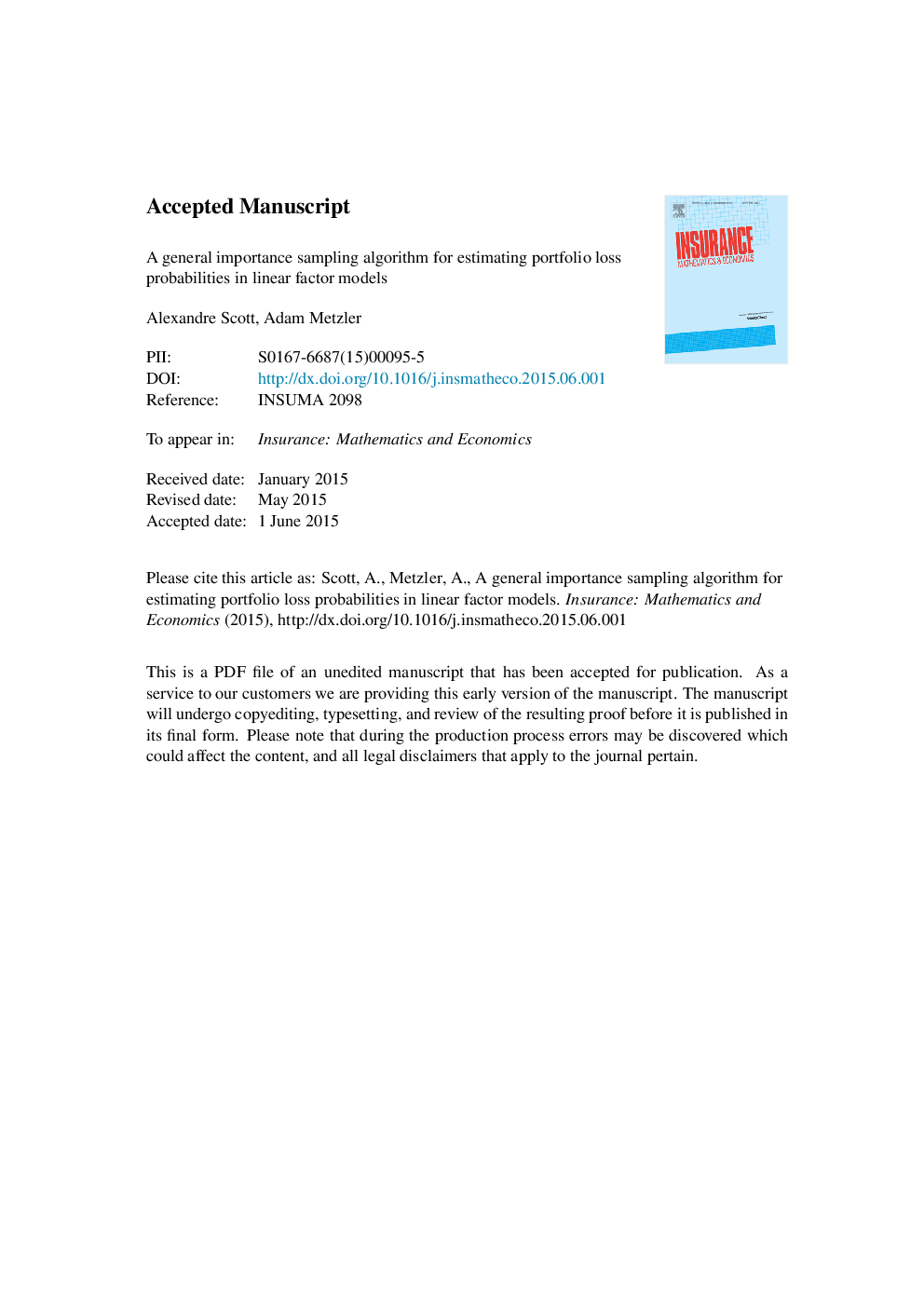| Article ID | Journal | Published Year | Pages | File Type |
|---|---|---|---|---|
| 5076402 | Insurance: Mathematics and Economics | 2015 | 37 Pages |
Abstract
This paper develops a novel importance sampling algorithm for estimating the probability of large portfolio losses in the conditional independence framework. We apply exponential tilts to (i) the distribution of the natural sufficient statistics of the systematic risk factors and (ii) conditional default probabilities, given the simulated values of the systematic risk factors, and select parameter values by minimizing the Kullback-Leibler divergence of the resulting parametric family from the ideal (zero-variance) importance density. Optimal parameter values are shown to satisfy intuitive moment-matching conditions, and the asymptotic behaviour of large portfolios is used to approximate the requisite moments. In a sense we generalize the algorithm of Glasserman and Li (2005) so that it can be applied in a wider variety of models. We show how to implement our algorithm in the t copula model and compare its performance there to the algorithm developed by Chan and Kroese (2010). We find that our algorithm requires substantially less computational time (especially for large portfolios) but is slightly less accurate. Our algorithm can also be used to estimate more general risk measures, such as conditional tail expectations, whereas Chan and Kroese (2010) is specifically designed to estimate loss probabilities.
Keywords
Related Topics
Physical Sciences and Engineering
Mathematics
Statistics and Probability
Authors
Alexandre Scott, Adam Metzler,
